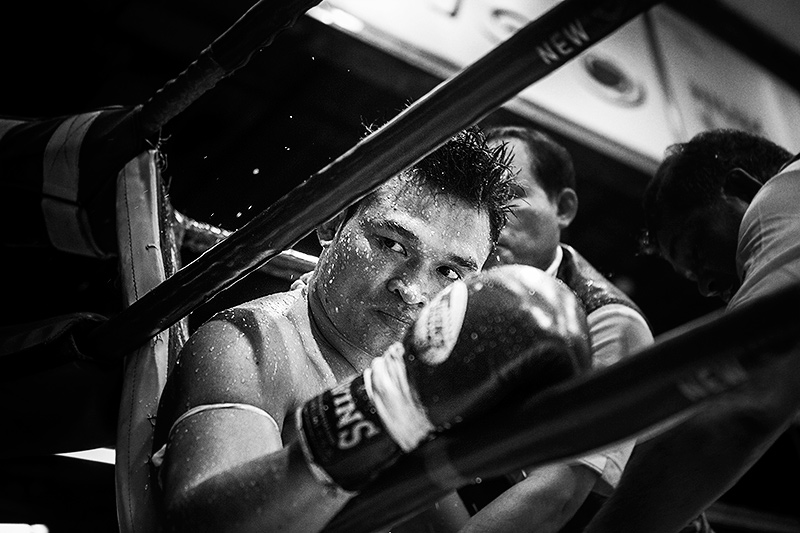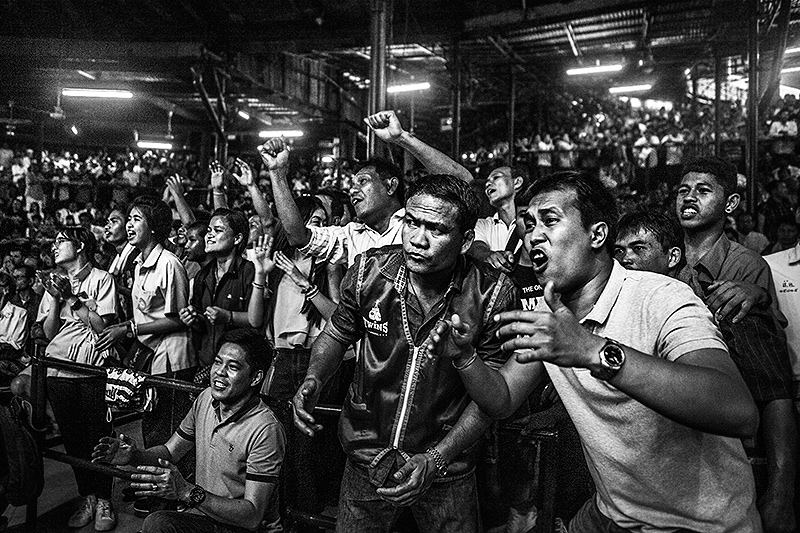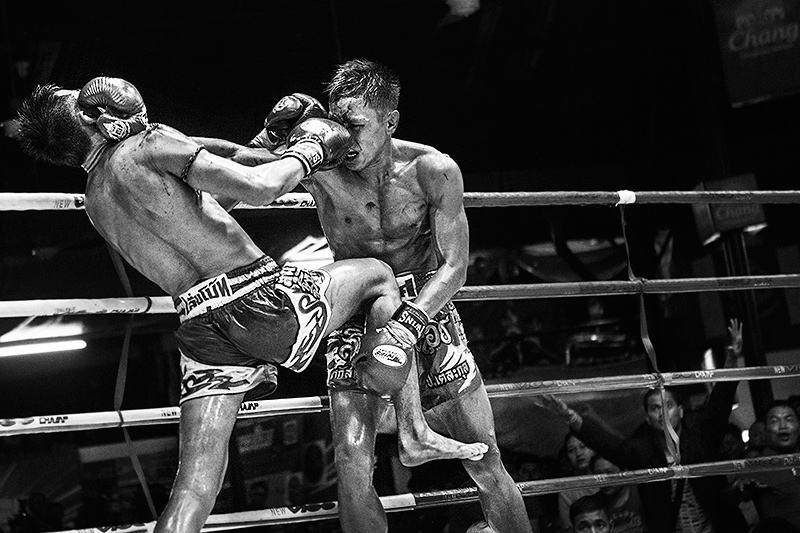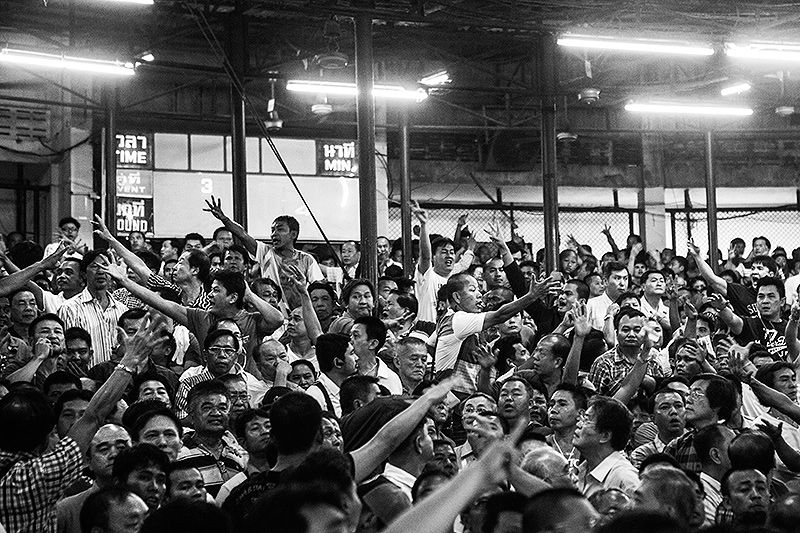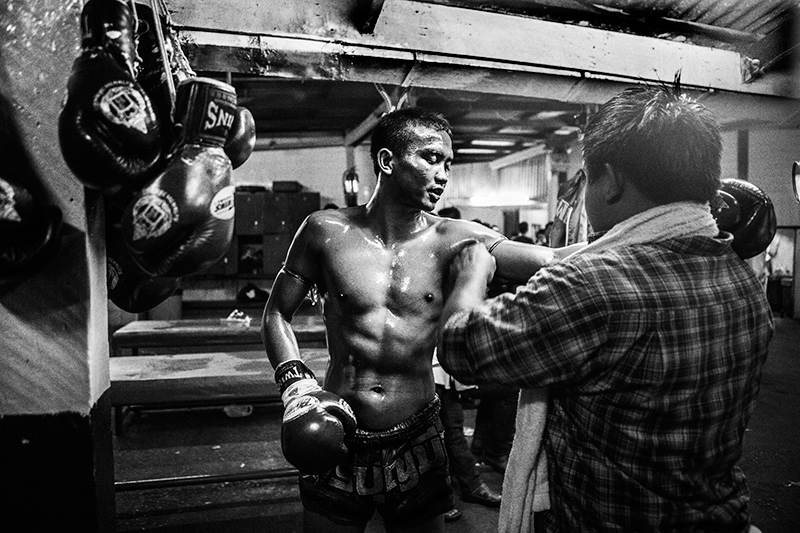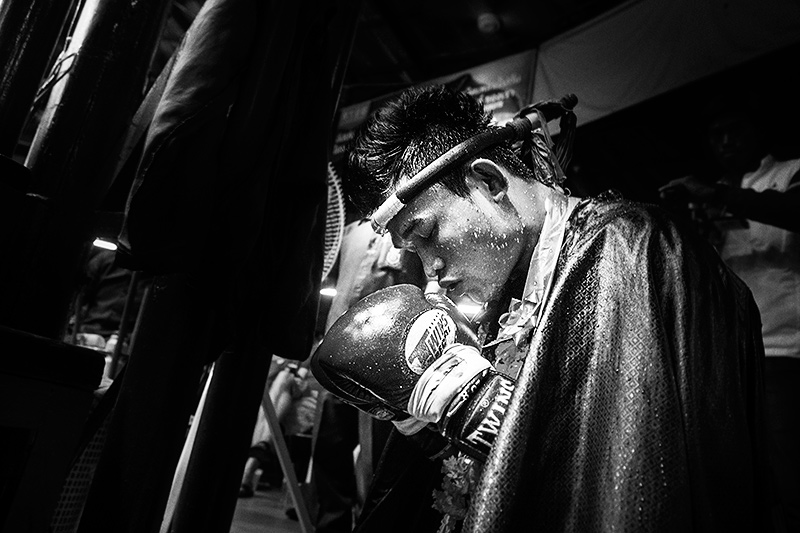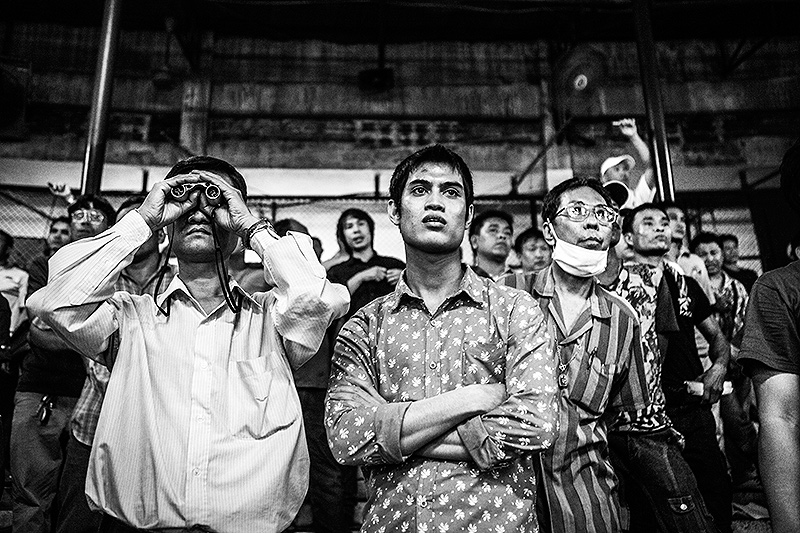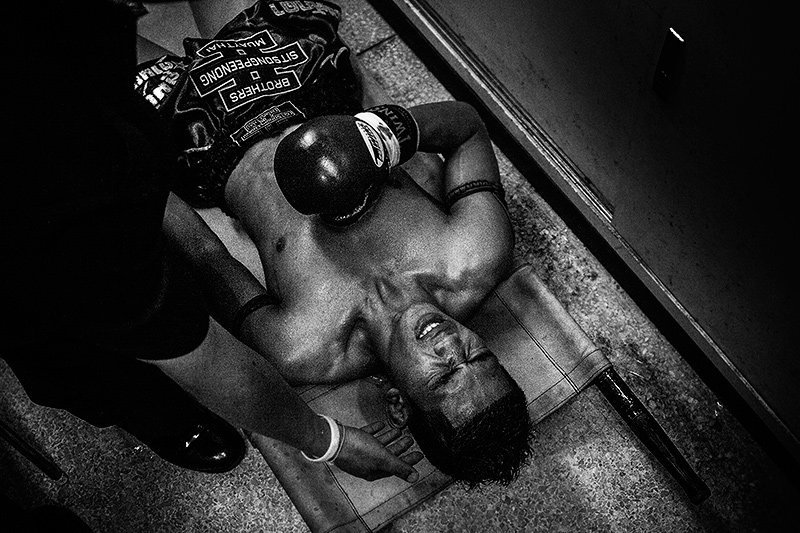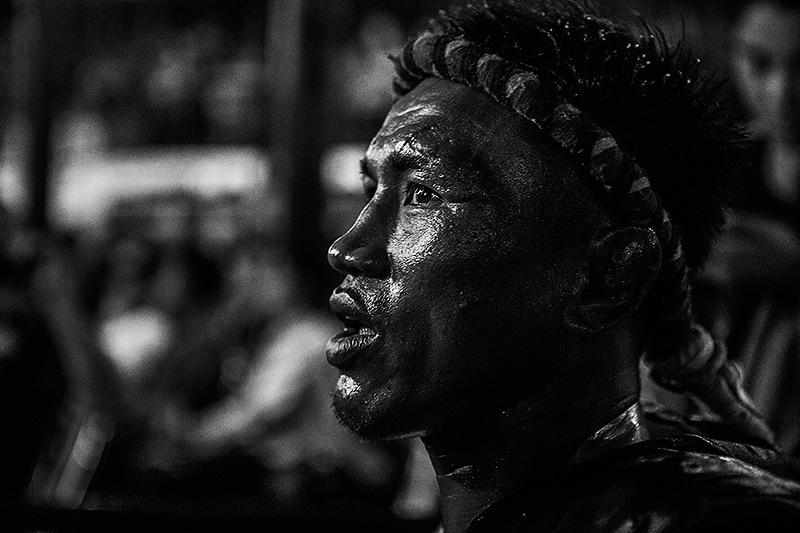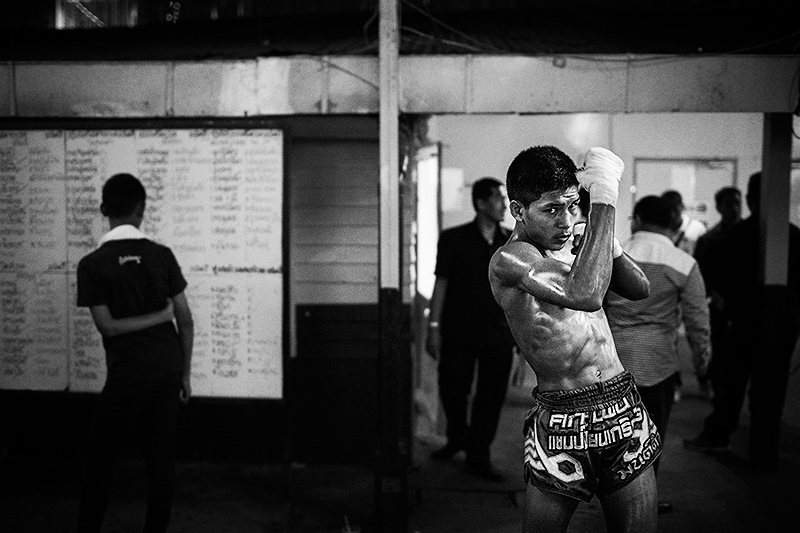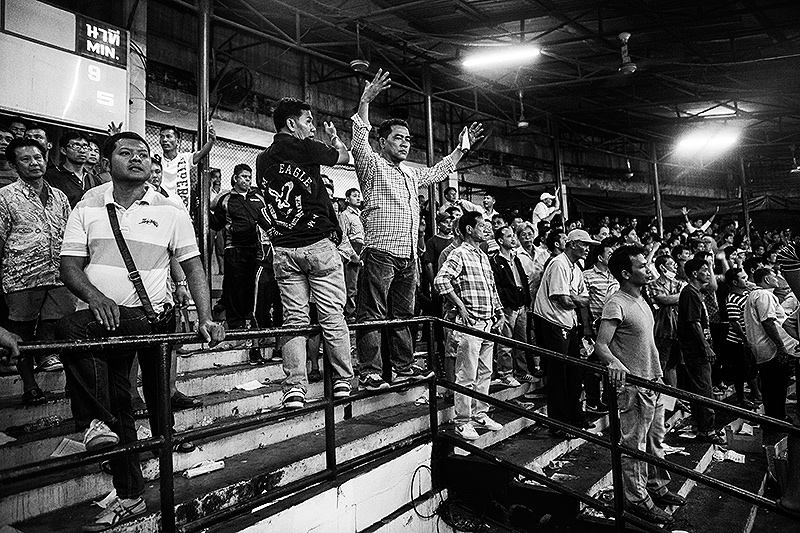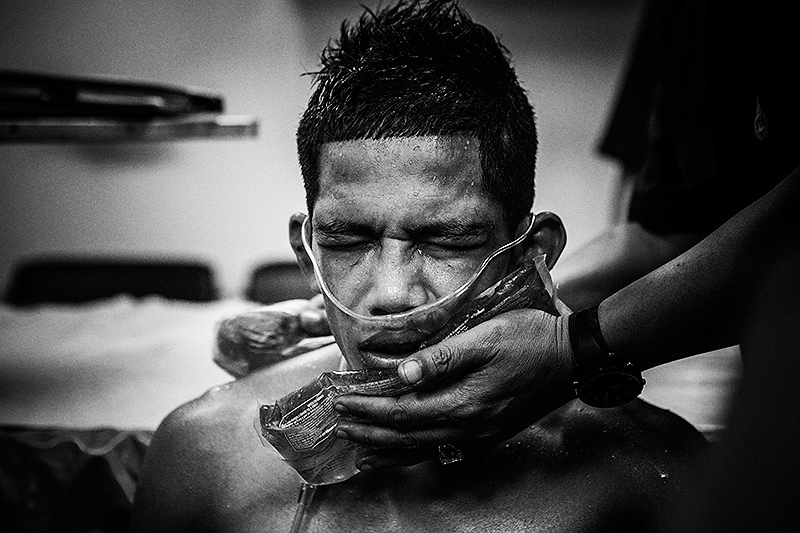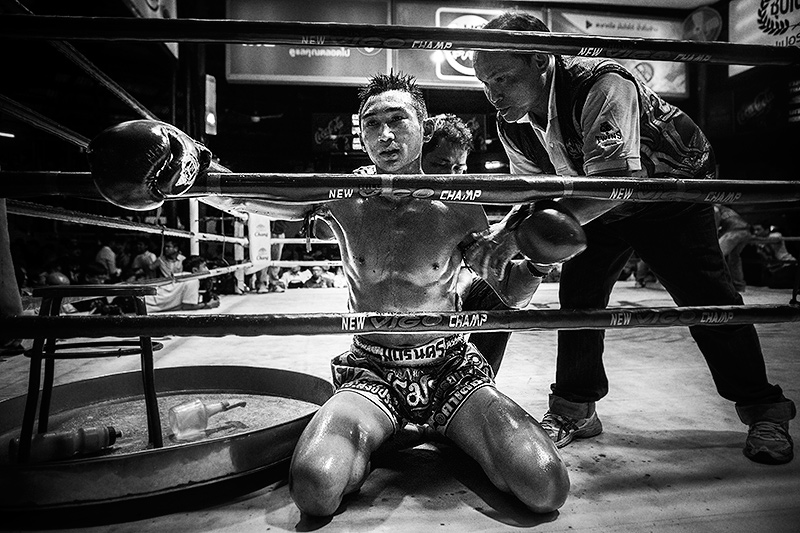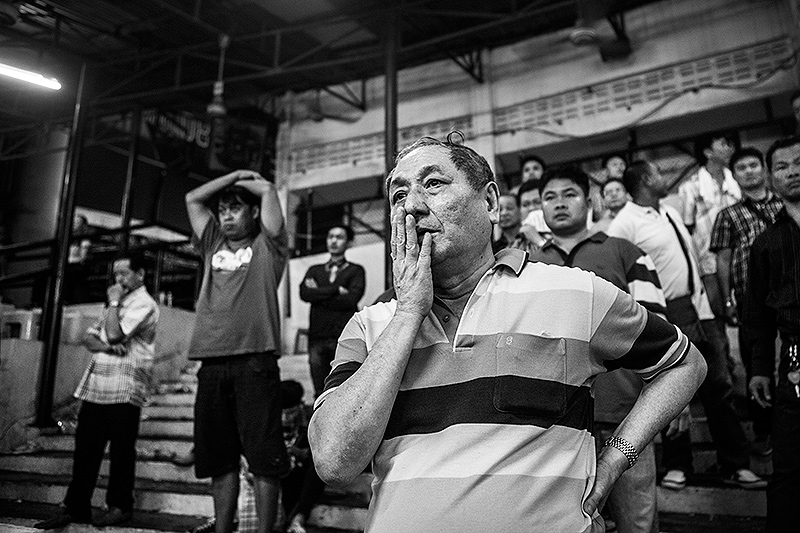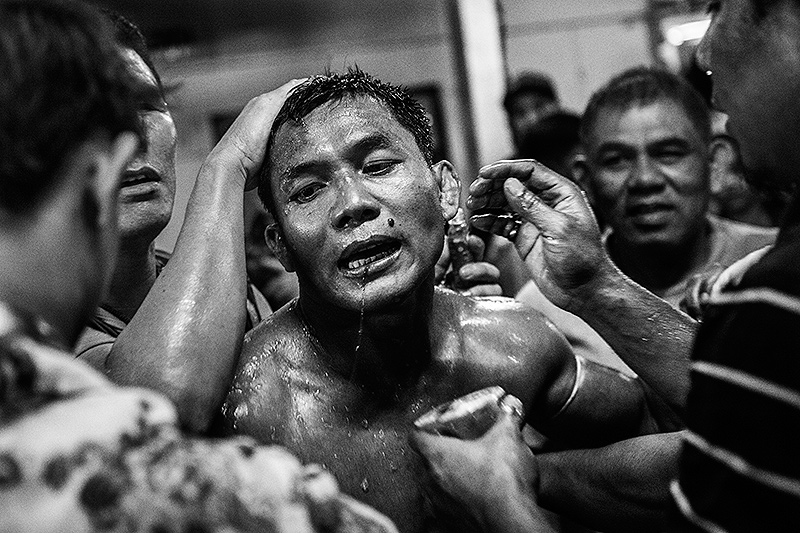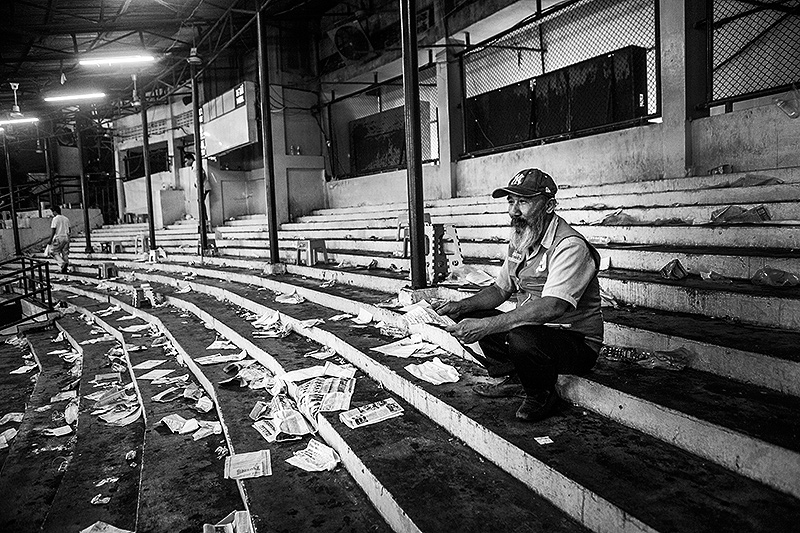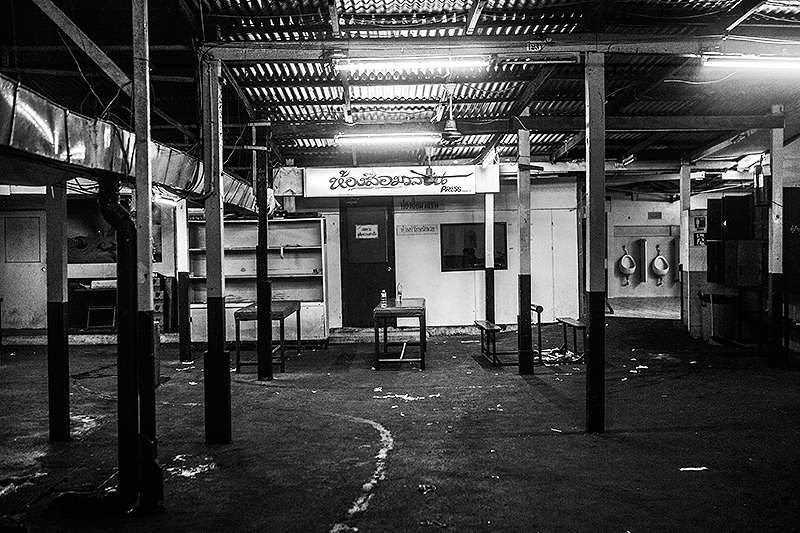Muay Thai Fighting Tips – How To Prepare for a fight
How To Warm Up & Mentally Prepare For A Muay Thai Fight
You get to the arena a few hours early, shake hands with a few people, and then you are guided to your locker room by the event staff. As you make your way to your locker room, that feeling really starts to really settle in.
You know that feeling I’m talking about, right?
The feeling of excitement, anxiety and nervousness all wrapped into one. The feeling that you’re about to test your physical and mental limitations in front of a roaring crowd. The feeling of relief because fight night is finally here!
Are you ready?
The Locker Room – Muay Thai Fighting Tips
The locker room before a fight is a very unique, one-of-a-kind place. After you’ve had a few fights, you begin to notice all the same familiar smells, noises and feelings.
You see your opponent and other fighters as they head to their respective locker rooms.
You smell the nostalgic aroma of thai oil as it’s massaged on every part of your body.
You hear the smack of thai pads as other fighters get loose for their fights.
You feel your heart beating a little bit faster as you get your hands wrapped by your kru.
You start envision and taste victory.
To ensure a glorious victory, there is a lot of hard work that goes into a fight camp. Obviously the weeks and months of sharpening your technique and improving your conditioning are super important, but the 30-45 minutes before you step into that ring is just as important as any single moment during your training camp.
If you are not warmed up properly before a fight you could:
- Get injured since your muscles are still tight and lethargic.
- Burn out and feel fatigued because you warmed up for too long.
- Misjudge your opponents timing and attacks.
- Overwhelm yourself with self-doubt and worry.
I assume you don’t want any of that to happen, right? Then follow these simple Muay Thai Fighting tips that will help you with your pre-fight preparation and get you physically and mentally ready for the fight of your life!
7 Muay Thai Fighting Tips For Pre-Fight Preparation
1. Practice your warm-up when you train
The warm-up you do before a training session should be almost identical to the warm-up you do before a fight. Not only will this help you get your body ready for the fight, but you won’t have to over think anything because you’ll be comfortable with the routine.
That being said, make sure your warm-up before a training session isn’t rushed and done mindlessly. If you plan on taking this sport seriously, you should plan on taking your warm-up seriously. Whether it’s skipping rope, shadowboxing, hitting the heavy bag, using the foam roller or whatever, it’s important to get your body loose, your mind focused, and your blood flowing.
It’s important to create a warm-up that gets you prepared for both a training session or a title fight. Every part of your body needs to be loose and ready for war. Once you get into a comfortable warm up routine, your body and mind will be a comfortable place and be more than ready for the intensity of a fight.
2. Find your “happy” place
Some people listen to music, while others sit in silence and meditate. Some people like to yell and scream to pump themselves up, while others like to laugh and relax with their team.
Whatever you do, find a way to keep your mind calm, relaxed and focused.
If you are one of the first fights on the card, then you won’t have as much time to relax. If you are one of the last fights, then you want to conserve your energy and only start to really get pumped up a couple fights before you’re on.
I’ve experimented and gone through many different stages of how I act before a fight. I’ve tried to laugh and be silly. I’ve tried being a complete dick and not talking to anyone. I’ve tried listening to Rocky music. I’ve tried a lot of shit.
After more than 20 fights, I’ve come to realize that as the fight gets closer and closer, I get quieter and quieter. I turn off all my emotion and just think about how I’m going to hurt my opponent. I don’t need any music. I don’t need anyone yelling in my face. I just need time to myself.
Just like with most things, being able to find your “happy” place will take plenty of experience before you truly begin to understand how your mind works before a fight. Be open-minded in terms of experimenting with different ways to psych yourself up before a fight, especially early on in you amateur career when you are still getting used to the fight scene.
3. Make it a routine
I find it very useful to have some type of routine whenever I fight. This stops me from thinking too much or worrying about what I have to do to get ready. If I have a set routine that I like and am comfortable with, I will be much more stress-free and focused when I make the walk to the ring.
Typically my warm-up routine looks something like this:
- Get to the arena, find the locker room and put my stuff down.
- Go to the ring, visualize the crowd around it and visualize my fight.
- Walk back to the locker room and rest until the rules meeting.
- After the rules meeting, listen to some music.
- About 4 – 5 fights before, get my hands wrapped and signed off on.
- Get my entire body massaged with thai liniment.
- Start light shadowboxing and visualizing my game plan.
- Hit thai pads lightly for 1-2 minute intervals with my trainer, with short 1-2 minute breaks.
- With about 1-2 fights before my fight, pick up the intensity and power in my strikes. Mix in some light sparring and clinching with my kru or training partner to get a feel for the fight.
- Put my mongkon on, stay loose by hopping around and shadowboxing, then make my way to the ring.
Now since I know what to expect before almost every fight, I don’t stress out nearly as much as I used to. I used go be anxious and amped up before I even got to the arena, but now, since I have a set routine, I’m much more in control of my thoughts and emotions than I was before.
4. Have knowledgeable, trustworthy cornermen
Having someone you know and trust in your corner can make the difference between winning and losing. Not only should they know the technical advice to give you between rounds, but they should also know how to get you zoned in during your warm up.
Talk through you game plan with your cornerman and let them know if you have any preference of how to be cornered (stand or sit between rounds, deep breaths before advice, motivational sayings etc.). It’s super important that you are on the same page as your cornermen, otherwise it can lead to confusion, anxiety and over thinking too much… which can be dangerous in the context of a fight.
Not only should your cornermen be on the same page as you, but they should know how to wrap your hands right too! I don’t know about you, but I punch a shit load, so having my hands wrapped properly is super important to me. Even if you’re not a heavy puncher, it’s vital to protect your hands so they don’t get injured.
5. Know what number you are fighting
Are you first or last?
If you are one of the first fights up, it’s important to get right into your routine pretty quickly. Make sure you keep in mind any intermissions and how long each of the fights are scheduled for. Also make sure to be prepared for any of the fights before you to end quickly!
If you are near the end of the card, relax. Maybe eat a banana and listen to some music, or talk with your team to keep your mind busy. Typically, I start to get ready about 4-5 fights before I’m on, but it’s up to you to find out what timing works best for you.
6. Be aware of your thoughts
Negative thoughts, self-doubt will pop up. It’s all good though!
I’m constantly thinking to myself “why did I sign up for this” or “no one is making you do this Sean”, but if those thoughts didn’t come across my mind, then I know something is wrong.
These thoughts are healthy and not abnormal by any means. The best way to deal with them is to be aware of them, but let them pass. Constantly be using positive self-talk and reminding yourself how much of a badass you are.
Remind yourself of how hard you worked to be where you are today.
Remind yourself that you put way too much time and effort to start doubting yourself now. Remind yourself, once you get in the ring, your training and instincts will take over.
Being in control of your mind is one of the most difficult things to do, especially when you’re about to step into the ring for a Muay Thai fight. Just remember, the only way to get better at dealing with these thoughts and emotions is with experience.
7. Make a list of stuff to pack
It can really fuck you up if you forget your cup or mouth guard, so don’t let it happen. Don’t be that guy who has to borrow someone else’s cup… that’s gross. To avoid this, make a list of everything you need for before and after the fight. Here is what I normally pack for fight night:
- thai shorts (2 pairs because I need to make sure I’m matching whatever corner I’m in)
- steel cup
- mouthguard
- thai liniment
- extra pair of clothes for afterwards
- phone, wallet, keys
- headphones
- snacks (trail mix, banana)
- water
- ibuprofen/aspirin
Also make sure that your corner is bringing the tape, gauze, scissors and all other necessary supplies to wrap up prior to stepping into the ring.
It might seem a lot goes into warming up before a fight… that’s because there is!
You have to be as prepared as possible is fight night, no excuses. If you half-ass your warm-up and go in the ring without a focused mind or loose body, chances are much more likely that you will get knocked the fuck out.
Like I said earlier, it takes time to get a solid warm-up routine down before you figure out what works best. If you are just starting out or still in your amateur career, it’s not the worst thing to experiment with different warm-ups and see what works best for you. Once you are further along your ammy career or become a pro, the last thing you’ll want to do is mess with your mojo.
Are you as obsessive about having a good warm-up before a fight as I am?
What other ways do you get physically and mentally prepared to step into the ring?
















